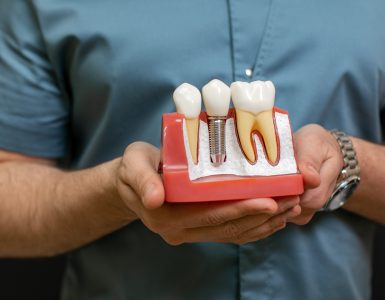Bad breath. Something many of us worry about and most of us will experience at some point in our lives. We are all likely familiar with some causes, namely through eating certain foods, such as onions and garlic, or through smoking and alcohol consumption. You may notice that you suffer from “morning breath” when you first wake up. However, these causes are short-lived and will disappear. It may be that we have persistent bad breath and don’t know that we do, or why we have it.
In most cases, bad breath is caused by problems in the mouth, although it can be caused by conditions in other parts of the body. Some contributing factors are:
- Poor oral hygiene. Sulphur-producing bacteria normally live on the surface of the tongue and throat. Tiny bits of food that are trapped in the teeth are broken down by these bacteria releasing a foul-smelling gas. Combined with plaque building up on the teeth and gums, lack of proper dental hygiene can also lead to tooth decay and gum disease, another big contributing factor to bad breath. The crevices in the surface of your tongue can also catch food particles, sulphur compounds and mucus causing bacteria to release an odour. You may notice a white coating on the back of your tongue.
- Mouth infections. Unhealed wounds inside your mouth, an abscess or an ulcer can cause problems. It can also happen after a tooth extraction or wisdom tooth removal when the blood clot that forms is dislodged before the wound heals. This is known as dry socket and can cause significant pain and be accompanied by bad breath.
- Dry mouth. Saliva has an important role in helping to break down food in your mouth. When your salivary glands don’t produce enough saliva, this can cause dry mouth. While there is a small reduction in saliva as we age, dry mouth can be caused by other things such as medication, alcohol, stress or a medical condition.
- Sinusitis and tonsillitis. An infection can cause mucus to drain from your nose down the back of your throat (post-nasal drip) causing bacteria to spread to your mouth.
- Other medical conditions. Conditions such as chronic liver failure, kidney disease, lower respiratory tract infections, cancer and diabetes. Gastric reflux may also cause bad breath.
- Dieting and fasting. When you go on a restricted diet to lose weight quickly, particularly a low carbohydrate diet, when your body breaks down the fat it releases chemicals called ketones that have a strong aroma and can lead to bad breath.
How is it treated?
Treatment will depend on an assessment of the problem. Your dentist will be able to give you a full assessment of your oral health with a thorough check of your teeth and gums. A deep professional clean and any necessary dental treatment may remedy the problem. They will also be able to give you advice on things you can do yourself as part of your oral hygiene routine. If the problem is from elsewhere in your body, your will need to visit your doctor for an assessment of any possible medical conditions, or medications you are taking that could be contributing to the problem.
If you have any concerns with bad breath, contact your dentist. Attending to any dental conditions promptly and having a professional clean will ensure the health of your teeth and gums and eliminate any oral causes of bad breath.




